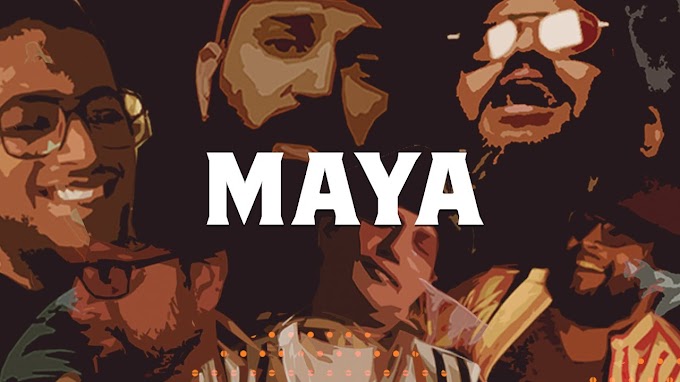2019 Pulwama attack
On 14 February 2019, a convoy of vehicles carrying security personnel on the Jammu Srinagar National Highway was attacked by a vehicle-borne suicide bomber at Lethpora (near Awantipora) in the Pulwama district, Jammu and Kashmir, India. The attack resulted in the deaths of 40 Central Reserve Police Force (CRPF)[a] personnel and the attacker. The responsibility for the attack was claimed by the Pakistan-based Islamist militant group Jaish-e-Mohammed. The attacker was Adil Ahmad Dar, a local from Pulwama district, and a member of Jaish-e-Mohammed.India has blamed Pakistan for the attack. Pakistan condemned the attack and denied any connection to it.
2019 Pulwama attack
Location of the attack in Jammu and Kashmir, India
Location : Lethpora, Pulwama district,
Jammu and Kashmir, India
Date : 14 February 2019
Target :
Security personnel of the Central Reserve Police Force
Attack type : Suicide attack, car bombing
Deaths : 40 (+1 suicide bomber)
Injured : 35
Perpetrators : Jaish-e-Mohammed
Assailants : Adil Ahmad Dar
HIGHLIGHTS :
Pulwama attack 2019, Terror attack on J&K CRPF
- At least 40 Central Reserve Police Force (CRPF) paramilitary troopers were killed in the attack
- Adil Ahmed Dar, 20, has been identified as the suicide bomber
- The Indian government has already initiated a diplomatic offensive against Pakistan after the attack
Background :
Kashmir is a disputed territory, claimed both by India and Pakistan with both countries administering part of the territory.Pakistan has sought to gain control of Indian-administered Kashmir. An insurgency began to proliferate in Indian-administered Kashmir in the late 1980s. Pakistan provided the insurgency with material support. Since 1989, about 70,000 people have been killed in the uprising and the Indian crackdown. According to Time, unrest in Kashmir grew in 2016 after India killed a popular militant leader, Burhan Wani. A rising number of young locals from Indian administered Kashmir have joined the militancy.Many sources state that the majority of militants in Kashmir are now local, not foreign. In 2018 alone, the death toll included 260 militants, 160 civilians and 150 government forces.
Since 2015, Pakistan-based militants in Kashmir have increasingly taken to high-profile suicide attacks against the Indian security forces. In July 2015, three gunmen attacked a bus, and police station in Gurdaspur. Early in 2016, four to six gunmen attacked the Pathankot Air Force Station. In February and June 2016, the militants killed nine and eight security personnel respectively in Pampore. In September 2016, four assailants attacked an Indian Army brigade headquarters in Uri killing 19 soldiers. On 31 December 2017, the Commando Training Centre at Lethpora was also attacked by militants killing five security personnel. These attacks took place in the vicinity of the Jammu Srinagar National Highway.
Attack :
Personnel killed
State-Number
Uttar Pradesh-12
Rajasthan-5
Punjab-4
Bengal-2
Odisha-2
Uttarkhand-2
Bihar-2
Maharashtra-2
Tamil Nadu-2
Assam-1
Karnataka-1
Jammu and Kashmir-1
Himachal Pradesh-1
Kerala-1
Jharkhand-1
Madhya Pradesh-1
Total:-40
On 14 February 2019, a convoy of 78 vehicles transporting more than 2,500 Central Reserve Police Force (CRPF)personnel from Jammu to Srinagar was travelling on National Highway 44. The convoy had left Jammu around 03:30 IST and was carrying a large number of personnel due to the highway having been shut down for two days prior. The convoy was scheduled to reach its destination before sunset.
At Lethpora near Awantipora, around 15:15 IST, a bus carrying security personnel was rammed by a car carrying explosives. It caused a blast which killed 40 CRPF personnel of the 76th Battalion and injured many others.The injured were moved to the army base hospital in Srinagar.
Pakistan-based militant group Jaish-e-Mohammed claimed responsibility for the attack. They also released a video of the assailant Adil Ahmad Dar, a 22-year old from Kakapora who had joined the group a year earlier. Dar's family had last seen him in March 2018, when he left his house on a bicycle one day and never returned. Pakistan denied any involvement, though Jaish-e-Mohammed's leader, Masood Azhar, is known to operate in the country.
It is the deadliest terror attack on India's state security personnel in Kashmir since 1989.
Perpetrator :
The perpetrator was identified as Adil Ahmad Dar (alias Adil Ahmad Gaadi Takranewala or Waqas Commando), a 22-year old from Kakapora.According to Dar's parents, Dar became radicalized after he was beaten by Indian police.Between September 2016 and March 2018, Adil Dar was reportedly arrested six times by Indian authorities.However, each time he was released without any charges.
Investigation :
The National Investigation Agency dispatched a 12-member team to probe the attack, working with the Jammu and Kashmir Police.
Initial investigations suggested the car was carrying more than 300 kilograms (660 lb) of explosives,including 80 kilograms (180 lb) of RDX, a high explosive, and ammonium nitrate.Lt Gen Hooda said that the explosives might have been stolen from a construction site. He initially said that it was not possible that they were smuggled from across the border, but later said that he could not rule it out.
Aftermath :
 |
| Candle light march organised in Mehsana, Gujarat |
State funerals of security personnel killed in the attack were held in their respective native places.The government of Punjab announced ex gratia compensation of ₹12 lakh (US$17,000) each to the families of the killed security personnel from the state and a government job to the next of kin.India revoked Pakistan's most favoured nation status.The customs duty on all Pakistani goods imported to India were raised to 200%.The government of India urged the Financial Action Task Force on Money Laundering (FATF) to put Pakistan in the blacklist. The FATF decided to keep it on 'grey list' and gave time till October 2019 to comply with 27 conditions laid in June 2018 when it was put on the 'grey list'. Failing comply, it will be added in the blacklist.On 17 February, the state administration revoked security provisions for separatist leaders.
Protests, bandhs and candle light marches were held across India.There were violent protests in Jammu resulting in a curfew being imposed starting 14 February. The Indian community in the United Kingdom held protests outside the Pakistan High Commission in London.A delegation of Indian doctors cancelled their visit to Pakistan for the 13th Association of Anaesthesiologists Congress, organised by the South Asian Association for Regional Cooperation, in Lahore on 7 March.Indian broadcaster DSport said it would no longer broadcast Pakistan Super League cricket matches.The All Indian Cine Workers Association announced a ban on Pakistani actors and artists in the Indian film industry, and stated that strong action would be taken on any organisation violating it.The Indian Film and Television Directors' Association also announced a ban on Pakistani artists in films and music produced in India; the president of the organisation threatened to "vandalise" the sets of any Indian film production with Pakistani artists.
On 20 February 2019, Pakistani prisoner Shakarullah, who was serving a life term in India's Jaipur Central Jail under Unlawful Activities (Prevention) Act, was stabbed and beaten to death by four other inmates.India claimed that Shakarullah was allegedly killed in a brawl among the inmates over television volume. Pakistan claimed that he was killed in retaliation of the Pulwama incident.
Reference:-Wikipedia
This is the end of this 2019 Pulwama attack on 14th February article.Hope you liked & Enjoyed it!
If you find any mistake in 2019 Pulwama attack on 14th February article please forgive us and please send correct information using contact us form.
Thank you!












0 Comments
Please do not enter any spam links in the Comment Box.
Emoji